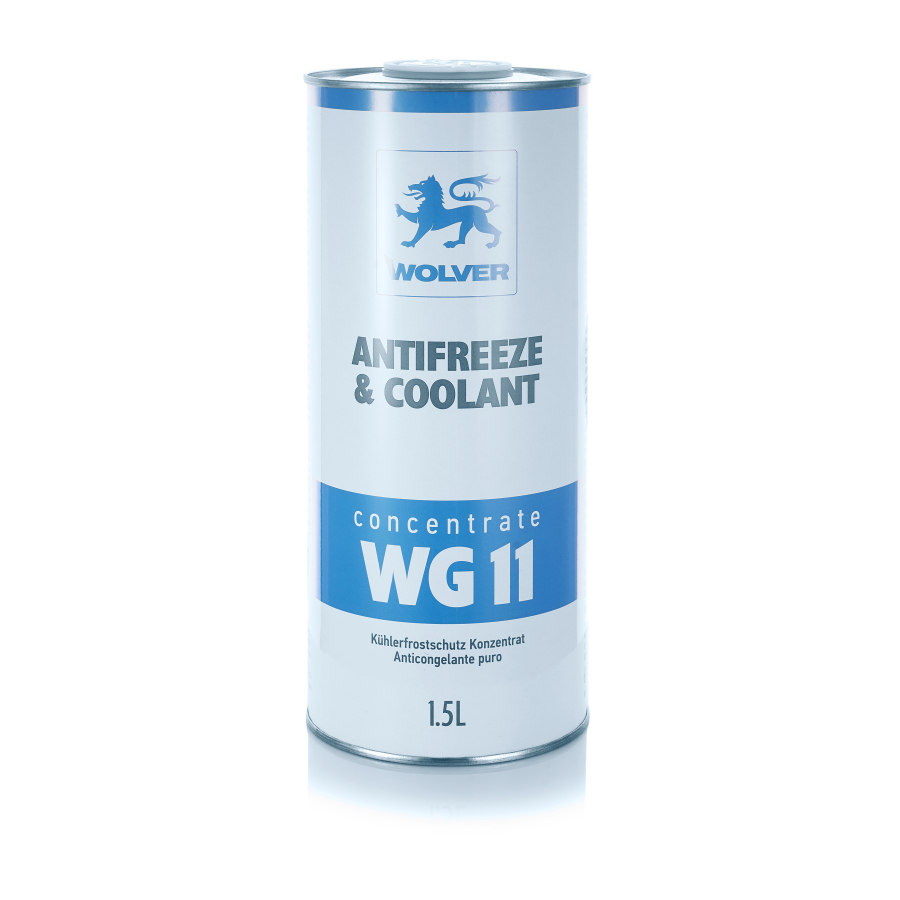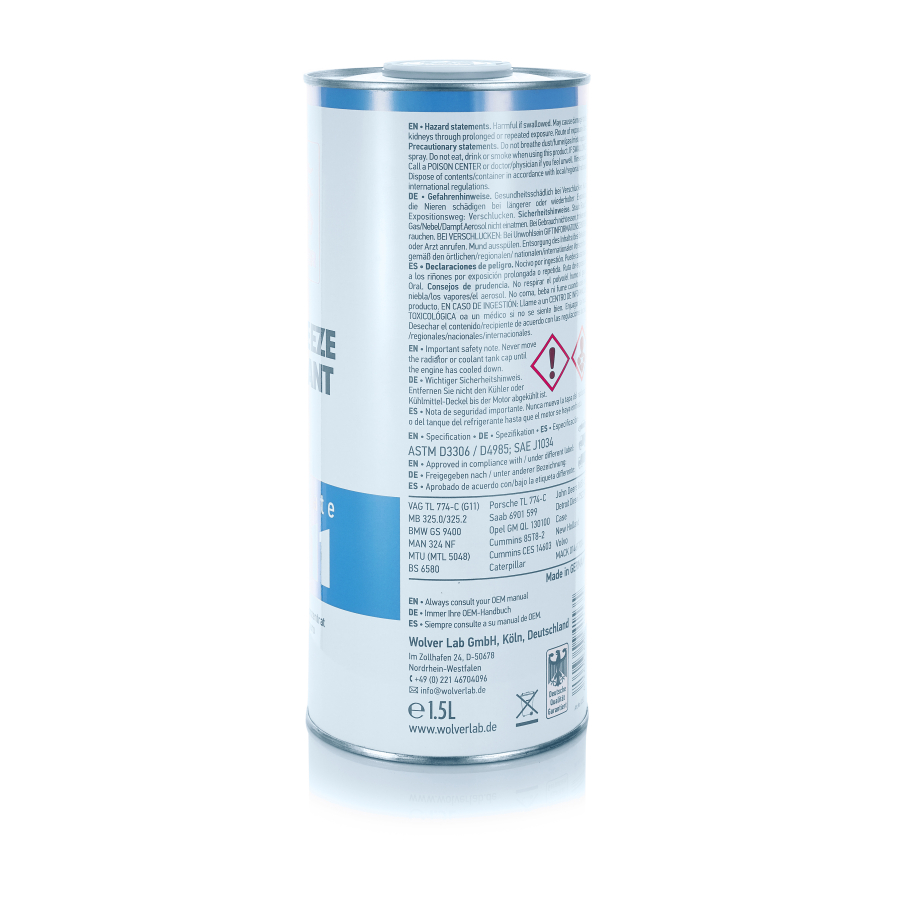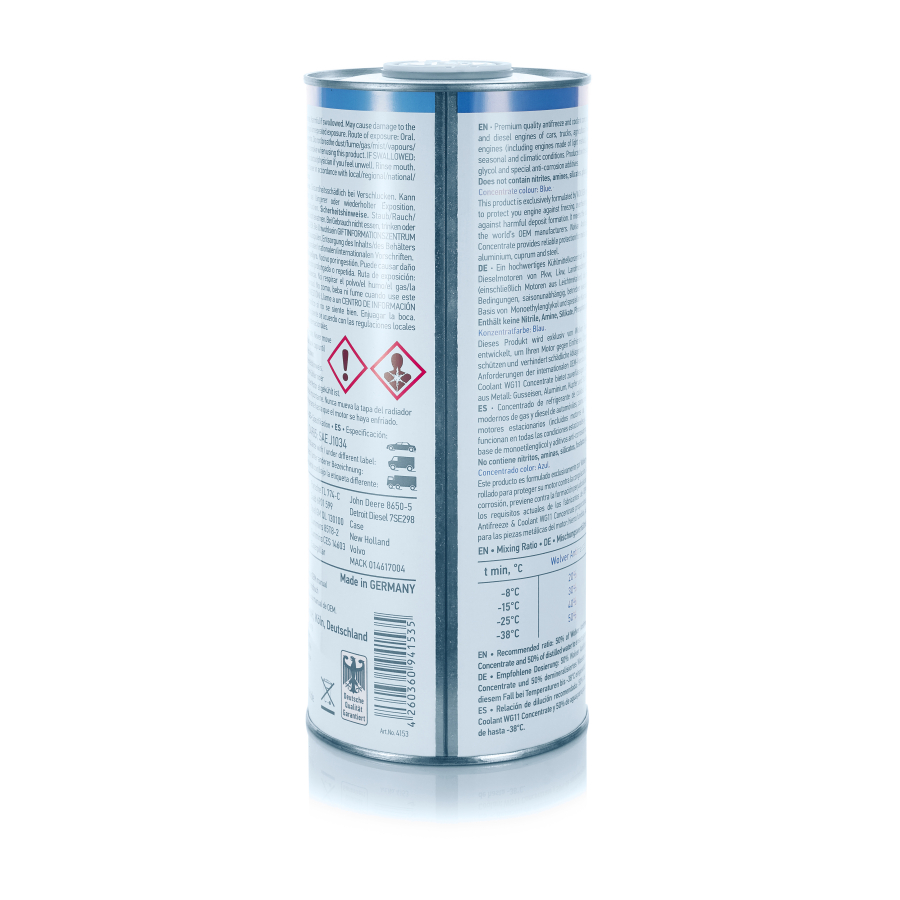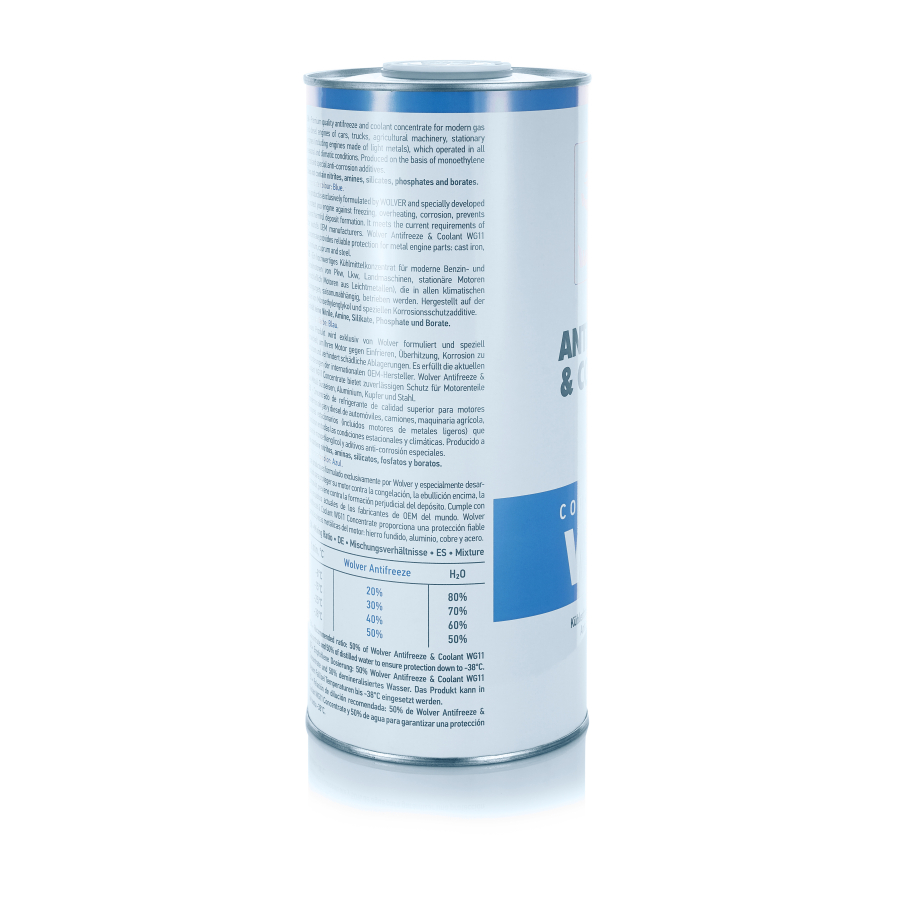Antifreeze & Coolant Concentrate WG11 (Blue)
Antifreeze & Coolant Concentrate WG11 (Blue)
Specifications
APPROVALS AND CONFORMITY
Characteristics
- Powerful and long-lasting protection against corrosion for all parts of the cooling system, which consist of materials such as steel, cast iron, aluminum, copper, brass, soft solder;
- Maintenance-free frost and overheating protection with a higher boiling point;
- Extended coolant life;
- Avoidance of cavitation damages, such as on the collant pump;
- Compatibility with varnishes;
- Compatibility with hose and sealing materials;
- Avoidance of sediments, which can cause radiator plugging;
- Avoidance of foaming.
Typicals
| Relative density at 15.6 °C, kg/m³ | 1118 |
| pH value 50% vol aqueous solution, - | 8.4 |
| Freezing point 50% vol aqueous solution, °C | -38 |
| Colour, - | blue |
Description
Wolver Antifreeze & Coolant WG11 Concentrate – high quality concentrate coolant for modern gas and diesel engines of cars, trucks, agricultural machinery, stationary engines (including engines of light metals), which operated in all seasonal and climatic conditions.
Wolver Antifreeze & Coolant WG11 Concentrate – protects your engine against freezing, overheating, corrosion, prevents the formation of harmful deposits. It provides reliable protection of the engine metal parts made of cast iron, aluminium, copper and steel.
Wolver Antifreeze & Coolant WG11 Concentrate – produced on the basis of monoethylene glycol and special anti-corrosion additives. Does not contain nitrites, amines, silicates, phosphates and borates.
Application
Wolver Antifreeze & Coolant WG11 Concentrate should be mixed before pouring into the cooling circuit with water at a concentration of 33 to max. 60 vol% can be used. Applying a 50/50 ratio for the mixture of water and Wolver Antifreeze & Coolant WG11 Concentrate is recommended.
Protection against the cold / antifreeze
50 vol% in water -38 °C
33 vol% in water -18 °C
Miscibility
To estimate all advantages of Wolver Antifreeze & Coolant WG11 Concentrate the mixing with other coolants is not recommended. For the preparation of mixtures, preferably softened water should be used.






